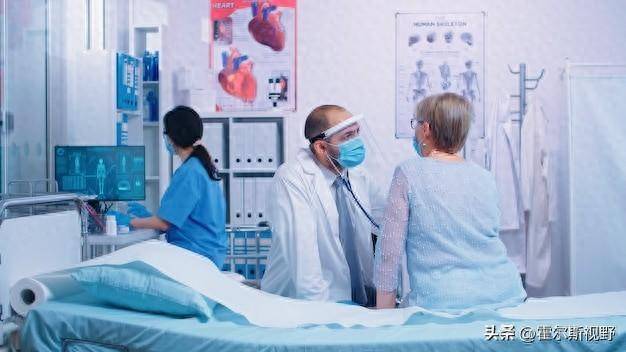On an ordinary afternoon, a mother took her son to the hospital, never anticipating it would be their last journey together. The son complained of dizziness, but the mother thought he was “faking it.” She didn’t pay much attention, preoccupied with the upcoming pressure of the college entrance examination. Her heart was filled with anxiety and blame; she hoped her son could be stronger and more diligent.
However, when her son suddenly collapsed on the way back to school and never woke up, the mother’s world completely shattered. After examination, the doctor informed her that her son’s heart and lung functions were normal, with no apparent pathological cause. Faced with such enormous tragedy, the mother began to blame herself, believing she had failed to notice her son’s condition in time, thinking she was the “culprit” behind his death.
The mother’s pain was indescribable, trapped in a deep abyss of guilt and regret. Just as she was on the verge of being consumed by these emotions, a kind doctor explained to her that her son’s death was caused by a rare congenital disease—Arnold-Chiari malformation, which led to posterior fossa hemorrhage, a condition that is difficult to detect even with advanced imaging prior to bleeding.
The doctor reassured her that even the most advanced medical technology could not foresee such tragedies. While his words were not entirely true, they were a kind “lie” that successfully liberated the mother from her guilt, allowing her to gradually accept her son’s passing and learn to face life anew.
At this moment, we cannot help but recall the epitaph of Canadian doctor Trudeau: “Sometimes to cure, often to help, always to comfort.” These few words reveal the essence of medicine: healing is not the only goal; more often, healthcare professionals need to provide the greatest comfort and support to patients and their families through their words and actions.
In this story, the doctor did not tell the mother the full medical truth but chose a kind “lie” to help her emerge from her suffering. The importance of such humanitarian care in medicine cannot be overlooked. Medicine is not merely about healing the body, but also about comforting the soul. The responsibility of doctors extends beyond diagnosing and treating illnesses; it includes understanding and caring for patients and their families.
The hospital’s service is not just an attitude, but a system. Hospitals need to build a people-centered service system, so that everyone who walks into the hospital can feel warmth and care. This care is reflected in the words and actions of doctors, in the smiles of nurses, and in every detail. As Trudeau said, even when we cannot cure, we can still provide help and comfort.
Ultimately, this story reminds us that the fragility and unpredictability of life are beyond our control. As healthcare professionals, what we can do is use our wisdom and kindness to help those in pain. Just like the doctor’s compassion for the bereaved mother, his act of kindness not only saved a person but also revealed the most beautiful side of humanity to us.
In this challenging and uncertain world, humanitarian care is not only a medical ethic but also a power that saves the soul. May we all draw strength from our experiences as we face life’s difficulties and find the courage to continue moving forward.
The Power of Humanitarian Care: At Times of Irreversible Illness
The story of the mother illustrates the intertwining of medicine’s imperfections and the brilliance of humanity. The doctor’s kind “lie” not only redeemed the mother’s spirit but also deeply reminded us that when medicine cannot answer all questions, humanitarian care can fill that void.


